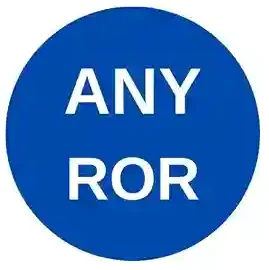Sleep is a basic human need, just like food and water. Yet, we’ve all wondered: “What if I just didn’t sleep for a few days? Could I power through?” It sounds extreme, but you’d be shocked at what the science says happens when you deprive your body and brain of sleep for an entire week. Let’s break it down, day by day.

🌄 Day 1: Feeling Sleepy, but Manageable
Mild fatigue, reduced alertness.
Mood swings and reduced ability to focus.
Reaction times begin to slow.
You’re yawning more often, your brain’s already trying to conserve energy. Coffee helps, but it’s only masking the underlying problem.
🌊 Day 2: Cognitive Slippage Begins
Memory starts to decline.
Speech becomes slurred.
Visual and auditory perception begin to distort slightly.
The body starts releasing more stress hormones like cortisol. You might feel jittery, anxious, or slightly disoriented. Microsleeps (brief moments of sleep without realizing) can begin.
🧠 Day 3: Mind and Body Breakdown
Decision-making becomes very poor.
You may feel like you’re “buzzing” or overly emotional.
Immune system weakens.
You’re now running on fumes. Your brain’s prefrontal cortex (the logic and reasoning center) is no longer functioning properly. Hallucinations may start.
🌪 Day 4: Enter the Dream State (While Awake)
Vivid hallucinations and paranoia.
Strong emotional instability.
Increased risk of accidents.
You may start to see or hear things that aren’t real. Your brain is desperately trying to enter REM sleep, even while you’re awake.
🫃 Day 5: The Body Rebels
Motor functions significantly impaired.
Blood pressure and heart rate go haywire.
Risk of permanent damage begins to rise.
You may look drunk, move slowly, and struggle to speak properly. Organs are under pressure.
🧐 Day 6: Total Disconnect
Brain begins shutting down certain regions to save energy.
Sense of reality is completely distorted.
Body temperature regulation may fail.
You’re no longer in control of your mind. Some people experience time dilation, severe paranoia, or identity confusion.
💔 Day 7: The Edge of Psychosis
Extreme risk of long-term mental health damage.
Heart and respiratory issues can arise.
The brain starts to enter protective shutdown mode.
This is the danger zone. You’re in full-blown sleep deprivation psychosis. Forcing yourself beyond this point could lead to seizures, coma, or even death in rare cases.
🛌 The Recovery Phase: Don’t Expect a Quick Fix
Even if you sleep for 12-16 hours afterward, your body and brain need days to fully recover. Some damage may be long-term, especially affecting memory, mood, and attention.
⚡️ The Bottom Line:
Sleep isn’t optional. It’s the reset button your body presses every night. Playing games with sleep is like pulling out the plug of a running computer – expect system errors.
So next time you think of skipping sleep for productivity or fun, remember: Your brain keeps score.
